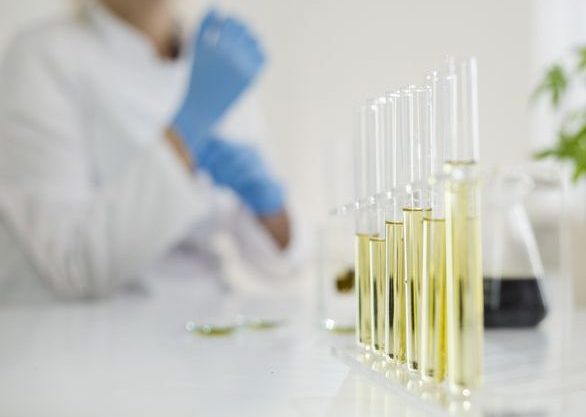With climate change and its environmental consequences upon us, many companies are turning to more ‘natural’ alternatives to the chemical-based ingredients commonly used in food, beverages, cosmetics, and therapeutics.
One such company is San Diego, California-based Debut Biotech, which bills itself as a “next generation biomanufacturing platform” using synthetic biology techniques to make complex ingredients.
The company announced last month that it had raised $22.6 million in a Series A funding round led by material tech investor Material Impact. Other participating investors included Cultivian Sandbox Ventures, ACVC Ventures, Humboldt Fund, Cantos Ventures, and existing backer KdT Ventures.
Debut Biotech’s founders, Joshua Britton and Nicholas Brideau, tell AFN that in the world of synthetic biology, $22.6 million is sizable for a Series A round – suggestive of the growing interest in the space from investors.
Biomanufacturing has the potential to reduce our global dependence on fossil fuels, land, and water for manufacturing many everyday items – be they food ingredients, colors, plastics, or pesticides. Recent research from McKinsey notes that about 60% of physical inputs into the global economy could be produced biologically, using cells and proteins to make natural materials like wood or meat, as well as plastics and fuels.
But traditional biomanufacturing, which relies on a fermentation process, also has its drawbacks. As Britton explains, many of those limitations are around the scalability and accessibility of the ingredients.
“With fermentation, there’re often limitations,” he says. “Things can’t get in and out of the cell, the products we’re trying to make are toxic, or we just physically can’t make enough.”
Though Debut Biotech refers to its platform as “cell-free biomanufacturing,” the company’s solution doesn’t totally eradicate cells from the process. Rather, it removes the limiting parts of the cell — such as the cell wall — in order to extract enzymes, which are proteins that control biochemical reactions within the cell. By fixing these enzymes in place instead of letting them float free in a reactor, the technology can leverage them to convert low-value feedstocks like glucose into high-value ingredients.
Doing so generates reactions in “a fraction of the time” compared to more traditional fermentation processes, according to Britton. This allows Debut Biotech’s platform to generate more complex ingredients faster and more cost effectively. Such ingredients are typically found in nature, but in such low quantities that they are hard to get ahold of or produce at scale via traditional fermentation.
“We believe biology will play a critical role in the future of manufacturing, and know that fermentation alone is not suitable for all products,” Dan Phillips, managing director at Cultivian Sandbox, tells AFN. “With its unique approach, Debut is able to expand the breadth of products for which biomanufacturing is commercially viable, which in turn advances sustainability across the food and agriculture value chain.”
Britton says that Debut Biotech currently has two pathways for its technology. On the one hand, it works with other companies that want a specific ingredient they can’t otherwise get because of cost or supply chain issues. On the other, it creates its own ingredients targeted at “the next wave” of functional foods, health and wellness products, and beverages.
Brideau emphasizes that their technology isn’t so much a replacement for fermentation as it is an “additional tool” that expands the potential of biomanufacturing in everyday production.
“We make [these ingredients] in a cleaner way and a much better way for the planet,” he says.
Debut Biotech, which was spun out of the University of California, Irvine, will use the new funds to commercialize its ingredients and expand production to a new 26,000 square-foot facility in San Diego.
The company also has existing deals in place with several strategic partners, including chemicals companies DIC and DSM.
As for when Debut Biotech’s own ingredients make it to market, Britton says there is “a pretty aggressive internal timeline.” The company just sent off its first ingredients to customers and is targeting early 2023 to be fully up and running.
“Cell-free is a viable alternative to fermentation and is pushing the boundaries of biology. So we’re happy to be a leader in the space, and a US-based leader as well,” Britton says.





